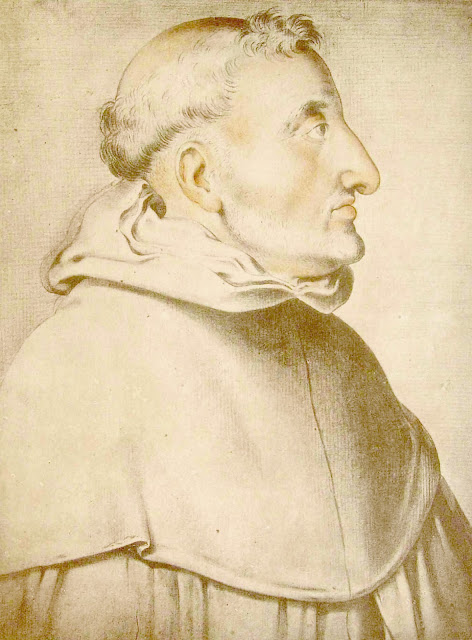Motive for Practicing Virtue
 |
| (Louis of Granada - found here) |
They know not that Christian philosophy is like its Divine Founder, who, though exteriorly the humblest of men, was nevertheless God and sovereign Lord of all things. Hence the Apostle tells the faithful that they are dead to the world, that their ‘life is hid with Christ in God.’ (Col. 3:3). Just as the glory of Christ was hidden by the veil of His humanity, so should the glory of His faithful followers be concealed in this world. . . .
Consider further with what care God provides for the necessities of all creatures. How generously He supplies even the smallest creatures with all that is necessary to the end for which they were created! Is it not unreasonable then, to think that He will disregard the necessities of man, the most important of which is virtue, and leave him a prey to his weak will, his darkened understanding, and his corrupt nature? The world and the prince of darkness are most assiduous in procuring vain pleasures and joys for those who serve them. Can you doubt, then, that God will grant refreshment, light, and peace to His faithful in the midst of the labors performed for Him? What did God wish to teach us by the words of the prophet: ‘You shall return, and shall see the difference between the just and the wicked, and between him that serveth God and him that serveth him not.’ (Mal. 3:18). Was it not that if we would be converted we would see and know, even in this life, the rewards of the good, ‘the difference between the just and the wicked’? We would behold the contrast between the true riches of the just and the poverty of the wicked; between the joy of the former and the misery of the latter; between the peace of the one and the conflicts of the other; between the light with which the good are surrounded and the darkness by which the wicked are enveloped. Experience will show you the real value of virtue and how far it exceeds your former anticipations.
. . .
Joy and peace and happiness are the spiritual treasures with which the liberality of our God enriches those who love Him. These are the blessings which the world does not know, and which the wealth of the world can never buy. And how fitting this is; for as man does not live by bread alone, so the craving of his soul cannot be satisfied by anything short of spiritual blessings.
. . .
If, then, you have forsaken an earthly father for love of God, your Heavenly Father will receive you as His child, and make you His heir to an everlasting inheritance. If you have despised earthly pleasures for love of Him, He will fill you with the incomparable sweetness of heavenly consolations. The eyes of your soul will be opened, and you will love and cherish what formerly frightened you. What was formerly bitter will become sweet; and, enlightened by grace, you will see the emptiness of worldly joys, and you will learn to relish the delights of God’s love. Thus does He manifest His merciful goodness; thus does He fulfill His promise to us.”
~Louis of Granada (from The Sinner's Guide)
.jpg)

Comments